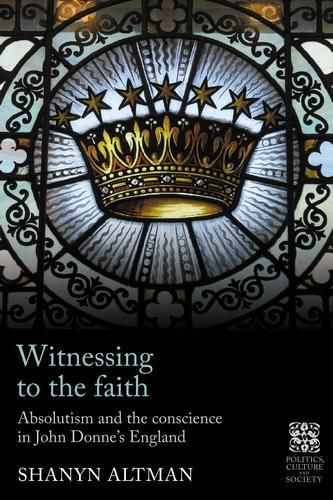Readings Newsletter
Become a Readings Member to make your shopping experience even easier.
Sign in or sign up for free!
You’re not far away from qualifying for FREE standard shipping within Australia
You’ve qualified for FREE standard shipping within Australia
The cart is loading…






This study utilises John Donne's works concerning the Jacobean Settlement as a contextualised case study to examine a seriously pressing issue in contemporary society: the issue of Catholic loyalism post-1603 and the disputes that this topic sparked over the matter of conformity.
Altman examines Donne's polemic in line with the vast expanse of literature relating to the pamphlet war and situates Donne's arguments within a strong contemporary tradition of conformist thought. Within this context, the study argues that Donne articulated a theory of royal absolutism that would have struck home with many contemporaries who, whether Catholic or not, were faced with a regime determined to bring them into conformity. It further contends that the religio-political standpoint represented by Donne was not only fairly obvious to the English state but was also widely accepted by it.
$9.00 standard shipping within Australia
FREE standard shipping within Australia for orders over $100.00
Express & International shipping calculated at checkout
This study utilises John Donne's works concerning the Jacobean Settlement as a contextualised case study to examine a seriously pressing issue in contemporary society: the issue of Catholic loyalism post-1603 and the disputes that this topic sparked over the matter of conformity.
Altman examines Donne's polemic in line with the vast expanse of literature relating to the pamphlet war and situates Donne's arguments within a strong contemporary tradition of conformist thought. Within this context, the study argues that Donne articulated a theory of royal absolutism that would have struck home with many contemporaries who, whether Catholic or not, were faced with a regime determined to bring them into conformity. It further contends that the religio-political standpoint represented by Donne was not only fairly obvious to the English state but was also widely accepted by it.